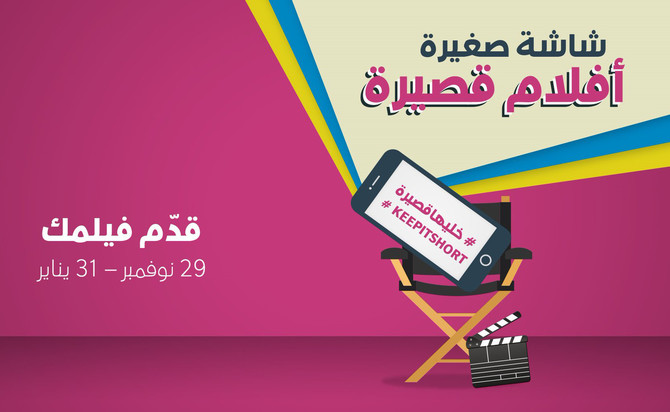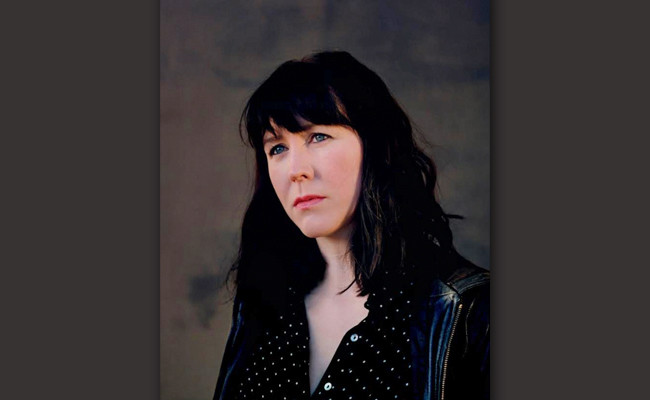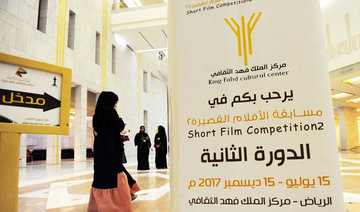JEDDAH: The British Council launched the “Small Screen, Short Film” festival on November 28, the first short film festival for young and ambitious filmmakers in the region.
Young filmmakers from the GCC can apply to the program whether they are residents or citizens, or citizens living in the UK. They can participate by creating a short film that does not exceed three minutes via their smartphones.
The British Council official Twitter account tweeted on December 1: “Think you can make a great short film using your smartphone or tablet? Then check Small Screen, Big Film, a filmmaking competition and online film festival for filmmakers in the Gulf or Gulf nationals living in the UK.”
The official account of British Council also tweeted: “Aged 14-25 and from the Gulf? The first ever Gulf smartphone film festival is now open for entries! 2 categories with 20 films screened online in March. Visit: http://bit.ly/SmallScreenBigFilm … | #keepitshort #competition”
Rehana Mughal, the British Council’s senior program manager for culture and sport in the Gulf, told Arab News: “Short films are a work of fiction; it can be based on reality; or drama or comedy, and can be in either animation or live action.”
She added: “The medium of short film allows for ease of making and the equipment of a smartphone or tablet means most people have access. “
To help filmmakers develop their entries, the British Council has partnered with IntoFilm, a British film-based educational charity, to create a step-by-step smartphone film guide, available for download from the festival website.
The competition also has a jury of renowned GCC and UK filmmakers who will shortlist films to be screened to a global audience during the online festival from March 15-25, 2018.
Jury members already confirmed include Emirati director Abdulla Al Kaabi, best known for his recent critically acclaimed film “Only Men Go to the Grave” (2017); Academy Award and four time BAFTA award-winning British filmmaker Asif Kapadia, whose documentaries “Amy” (2015) and “Senna” (2010) won him high praise; and English actress and writer, Amy Lowe, will also be among the jury.
Of the shortlisted films to be screened in March 2018 during the festival, four winners will be selected to receive one-on-one workshops with UK film talent.
Speaking of the program launch, Amir Ramzan, Saudi Arabia country director at the British Council, said: “Over our years in the Gulf, we’ve seen a growing passion among young people toward sport and culture in their communities, and have created the culture and sport program to provide a platform to support and grow this talent. We believe that everyone should be able to reap the benefits that being involved in sporting and cultural activities can bring, the idea being to help young people understand that you don’t necessarily have to be an artist or a footballer to be successful in this field and that there are many exciting career opportunities in these sectors.”
British Council dares GCC youth to make films with smartphones
British Council dares GCC youth to make films with smartphones

Eastern Region’s green initiative shows remarkable progress

- Initiative has focused on introducing climate-appropriate trees and flowers
- Eastern Province Municipality emphasized the project’s collaborative nature
DAMMAM: Significant strides were made by the Eastern Province Municipality last year in its efforts towards vegetation expansion and anti-desertification.
The initiative, designed to counter industrial pollution, improve air quality and move towards environmental sustainability, has focused on introducing climate-appropriate trees and flowers while adhering to scientific afforestation guidelines and controls.
Throughout the year, the municipality launched 87 initiatives involving more than 1,200 volunteers across 60 parks. This included the Dammam Corniche waterfront and its walking trails where some 680,000 trees and shrubs were planted, complemented by 7.7 million flowers, expanding green coverage by 205,000 sq. meters.
Work was also carried out to rehabilitate streets and other spaces, while technical upgrades included maintenance work on 200 pumps and the installation of irrigation networks covering 30 km of streets.
There was also progress for the park investment program, with four parks already under investment management and 400 more designated for future opportunities.
The municipality emphasized the project’s collaborative nature, highlighting the active participation of community members, government bodies and the private sector companies. Its inclusive approach aims to cultivate a lasting environmental consciousness and ensure sustainability practices are passed down to future generations.
Riyadh to host second edition of Model of Care Forum

- Forum aims to introduce the Saudi healthcare model locally and internationally, highlight success stories, and outline future goals and ambitions
- Forum represents the second phase in a four-part strategic process in the healthcare sector’s transformation
RIYADH: Riyadh will host the second edition of the Model of Care Forum under the patronage of Minister of Health Fahad Al-Jalajel.
Organised by the Health Holding Co. on Jan. 28-29, the forum will be held at Malfa Hall in Prince Mohammed bin Salman Nonprofit City.
The forum aims to introduce the Saudi healthcare model locally and internationally, highlight success stories, and outline future goals and ambitions in line with the Saudi Vision 2030.
It also promotes partnership in healthcare among individuals and their families by taking necessary measures to maintain their health, ensuring the provision of healthcare that meets societal needs according to the highest quality standards.
The forum represents the second phase in a four-part strategic process in the healthcare sector’s transformation, aimed at developing the healthcare model in the Kingdom.
The Health Holding Co. is playing a key role in enabling healthcare delivery through 20 health clusters across Saudi Arabia.
Directorate imposes new exit visa requirement

- Directorate addressed employers, stating that if a resident identity is valid for fewer than 30 days, the final exit visa may not be issued
- Resident identity must be renewed for the issuance of the final exit visa
RIYADH: The Saudi General Directorate of Passports has said that resident identities must be valid for at least 30 days when applying for a final exit visa.
The directorate addressed employers, stating that if a resident identity is valid for fewer than 30 days, the final exit visa may not be issued. In that case, the resident identity must be renewed for the issuance of the final exit visa.
It noted that if a resident identity is valid for more than 30 days and fewer than 60 days, a final exit visa may be issued for the resident identity’s remaining period.
If the resident identity is valid for 60 days or more, the final exit visa may be issued for 60 days only.
The directorate noted that employers may issue final exit visas for their sponsored workers or affiliated family members through the Ministry of Interior’s Absher Business platform, and the Muqeem portal.
Saudi king and crown prince congratulate Joseph Aoun on being elected president of Lebanon

- In a congratulatory cable, King Salman wished Aoun success and the Lebanese people further progress and prosperity
RIYADH: Saudi Arabia’s King Salman and Crown Prince Mohammed bin Salman congratulated Joseph Aoun on being elected president of Lebanon on Thursday.
In a congratulatory cable, King Salman wished Aoun success and the Lebanese people further progress and prosperity.The crown prince sent a similar cable.
Lebanon’s parliament voted Thursday to elect the country’s army commander, Joseph Aoun, as head of state, filling a more than two-year-long presidential vacuum.
Thursday’s session was the 13th attempt to elect a successor to Michel Aoun, whose term ended in October 2022.
King Abdulaziz Public Library launches Thara Saudi, Athar initiatives

- Through Thara Saudi the KAPL offers a number of programs that contribute to highlighting cultural tourism
- Athar is an interactive platform inspired by one of the pioneering national documentation projects, “The Encyclopedia of the Kingdom of Saudi Arabia”
RIYADH: General Supervisor of the King Abdulaziz Public Library Faisal bin Abdulrahman bin Muammar launched the Thara Saudi and Athar initiatives at the third Saudi Tourism Forum in Riyadh.
Through Thara Saudi the KAPL offers a number of programs that contribute to highlighting cultural tourism, while Athar is an interactive platform inspired by one of the pioneering national documentation projects, “The Encyclopedia of the Kingdom of Saudi Arabia.”
Speaking at the launch, Muammar said: “The Thara Saudi Arabia is the initiative through which the library seeks to provide a distinctive cultural tourism experience that reflects the rich and diverse history and culture of the Kingdom and aims to present a sustainable vision that contributes to enhancing local culture in global languages.
“It comes as an expression of the efforts of 40 years of cultural and cognitive work, which created a national legacy and a sustainable impact,” added Muammar.
He said the KAPL also launched the Athar initiative, which represents the historical monuments and landmarks mentioned in the encyclopedia of Saudi Arabia, enabling tourists to discover the Kingdom in an unprecedented way.
This project is designed to enhance the Kingdom’s position as a global destination for cultural tourism, and reflects the great diversity Saudi Arabia enjoys.
Through its pavilion at the Saudi Tourism Forum, which was held from Jan. 7-9 at the Riyadh Front, the KAPL seeks to enhance cultural awareness and provide knowledge content that contributes to highlighting the Saudi national heritage, and encourages the exploration of the Kingdom’s unique cultural destinations.
In November the KAPL launched an initiative to position Saudi Arabia as a top global destination for cultural tourism by attracting visitors worldwide to explore the library’s diverse branches.
This project aligns with the Kingdom’s Vision 2030 by strengthening national identity, fostering cultural exchange, and supporting sustainable development.
Through its efforts, the KAPL seeks to showcase Saudi Arabia’s rich heritage, folk arts, and traditions, while deepening citizens’ connections to their cultural roots and contributing to economic diversification.

























